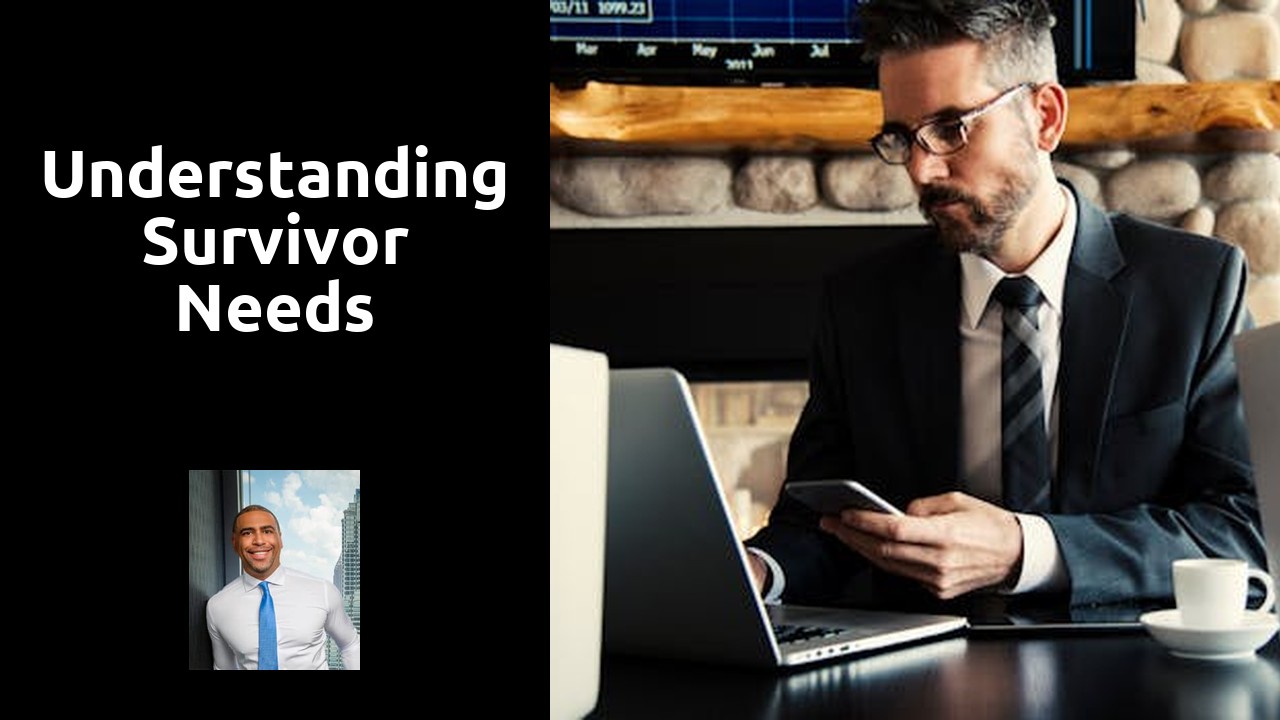Understanding Survivor Needs

Table Of Contents
Promoting SelfCare Strategies
One crucial aspect in supporting survivors is the promotion of self-care strategies. Encouraging individuals to prioritize their own well-being is essential in fostering healing and resilience. By empowering survivors to engage in activities that nurture their mental, emotional, and physical health, they can better cope with the impact of trauma.
Self-care can encompass a wide range of practices, from mindfulness exercises to engaging in hobbies that bring joy and relaxation. Encouraging survivors to identify what brings them peace and implementing these activities into their daily routines can have profound effects on their overall well-being. Additionally, promoting healthy habits such as regular exercise, adequate sleep, and nutritious eating can contribute to a sense of control and empowerment in the aftermath of trauma.
Encouraging Healthy Coping Mechanisms
Supporting survivors in developing healthy coping mechanisms is paramount in their healing journey. By helping individuals identify and implement positive ways to manage stress and emotions, we empower them to navigate challenges effectively. Encouraging activities such as exercise, journaling, or mindfulness can provide a sense of control and stability amidst difficult circumstances.
Furthermore, fostering healthy coping strategies can lead to increased self-awareness and emotional regulation. Through exploring various techniques tailored to their needs, survivors can build resilience and enhance their overall well-being. By promoting a proactive approach to managing distress, individuals are better equipped to cope with triggers and setbacks in a constructive manner.
Encouraging Participation in Therapy
Participation in therapy is a crucial component of the healing process for survivors of traumatic experiences. Engaging in therapy provides individuals with a safe space to explore their emotions, process their thoughts, and develop coping strategies. By actively participating in therapy sessions, survivors can gain a better understanding of themselves and their reactions to past events.
Therapy offers survivors the opportunity to work through challenging emotions and beliefs in a supportive environment. Through therapy, individuals can learn healthy ways of coping with their trauma and develop skills to navigate difficult situations. It is important to encourage survivors to prioritize their mental health by engaging in therapy regularly and openly discussing their experiences with a trained professional.
Emphasizing the Benefits of Professional Help
Survivors of trauma can greatly benefit from seeking professional help as they navigate their healing journey. Professional therapists and counselors are equipped with the knowledge and skills to provide effective support and guidance tailored to the individual's specific needs. Through therapy, survivors can explore their thoughts, emotions, and experiences in a safe and non-judgmental space, leading to deeper self-awareness and understanding.
Therapeutic interventions can help survivors develop coping strategies to manage their emotions and reactions to triggers effectively. Working with a mental health professional can equip survivors with tools to address their trauma symptoms and build resilience. Additionally, therapy offers a supportive environment where survivors can process their trauma experiences, gain insights into their triggers, and learn healthy ways to cope with overwhelming emotions.
Fostering Resilience and Empowerment
Fostering resilience and empowerment is a vital aspect of aiding survivors in their journey towards healing and recovery. By instilling a sense of strength and determination in survivors, they are better equipped to navigate through the challenges they may face. Through empowerment, survivors can regain a sense of control over their lives, allowing them to move forward with confidence and independence.
Encouraging survivors to explore their inner resilience and recognize their capacity to overcome adversity is crucial. By highlighting their strengths and resilience, survivors can start to rebuild their self-esteem and self-worth. Empowerment also involves providing survivors with the tools and resources they need to advocate for themselves and make choices that align with their well-being and goals.
Cultivating Strength and Independence
Cultivating strength and independence is crucial for survivors as they navigate the aftermath of trauma. By fostering a sense of empowerment, survivors can regain control over their lives and build resilience in the face of adversity. This process involves recognizing one's inner strength and tapping into it to overcome challenges that may arise.
Encouraging survivors to take ownership of their experiences and seek growth opportunities can help them develop a greater sense of independence. By empowering survivors to make their own choices and decisions, they can rebuild their self-esteem and confidence. Through fostering a mindset of resilience and independence, survivors can gradually reclaim their sense of agency and pave the way for their healing journey.
FAQS
What are self-care strategies, and why are they important for survivors?
Self-care strategies are practices that individuals can engage in to promote their physical, mental, and emotional well-being. They are crucial for survivors as they help in managing stress, reducing anxiety, and fostering overall resilience. ####
How can healthy coping mechanisms benefit survivors?
Healthy coping mechanisms enable survivors to navigate challenging situations in a constructive manner. They promote emotional regulation, reduce the risk of burnout, and enhance one's ability to cope with trauma effectively. ####
Why is participation in therapy encouraged for survivors?
Therapy provides survivors with a safe space to process their experiences, explore their emotions, and develop coping strategies. It can lead to healing, growth, and a better understanding of oneself. ####
What are the benefits of seeking professional help for survivors?
Seeking professional help offers survivors access to specialized support, expertise, and resources that can aid them in their healing journey. It can facilitate recovery, promote self-discovery, and empower individuals to overcome their challenges. ####
How can resilience and empowerment be fostered in survivors?
Fostering resilience and empowerment in survivors involves cultivating a sense of strength, agency, and self-efficacy. It requires emphasizing one's capacity to adapt, grow, and thrive in the face of adversity. ####
How does cultivating strength and independence contribute to the well-being of survivors?
Cultivating strength and independence empowers survivors to regain a sense of control, autonomy, and self-confidence. It nurtures a positive self-image, self-reliance, and the ability to navigate life's challenges with resilience.
Related Links
Augusta, GA sexual abuse lawyer representing survivorsAssessing Case Merits
Psychological Evaluation Considerations